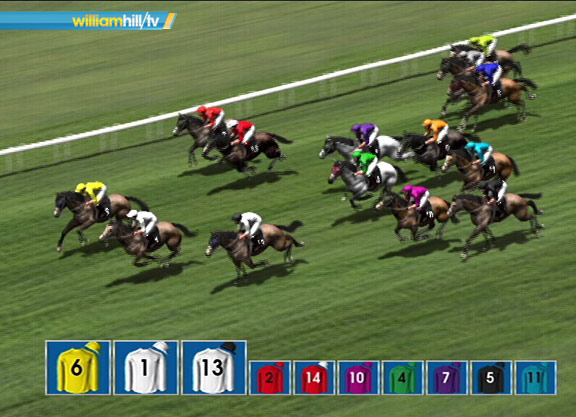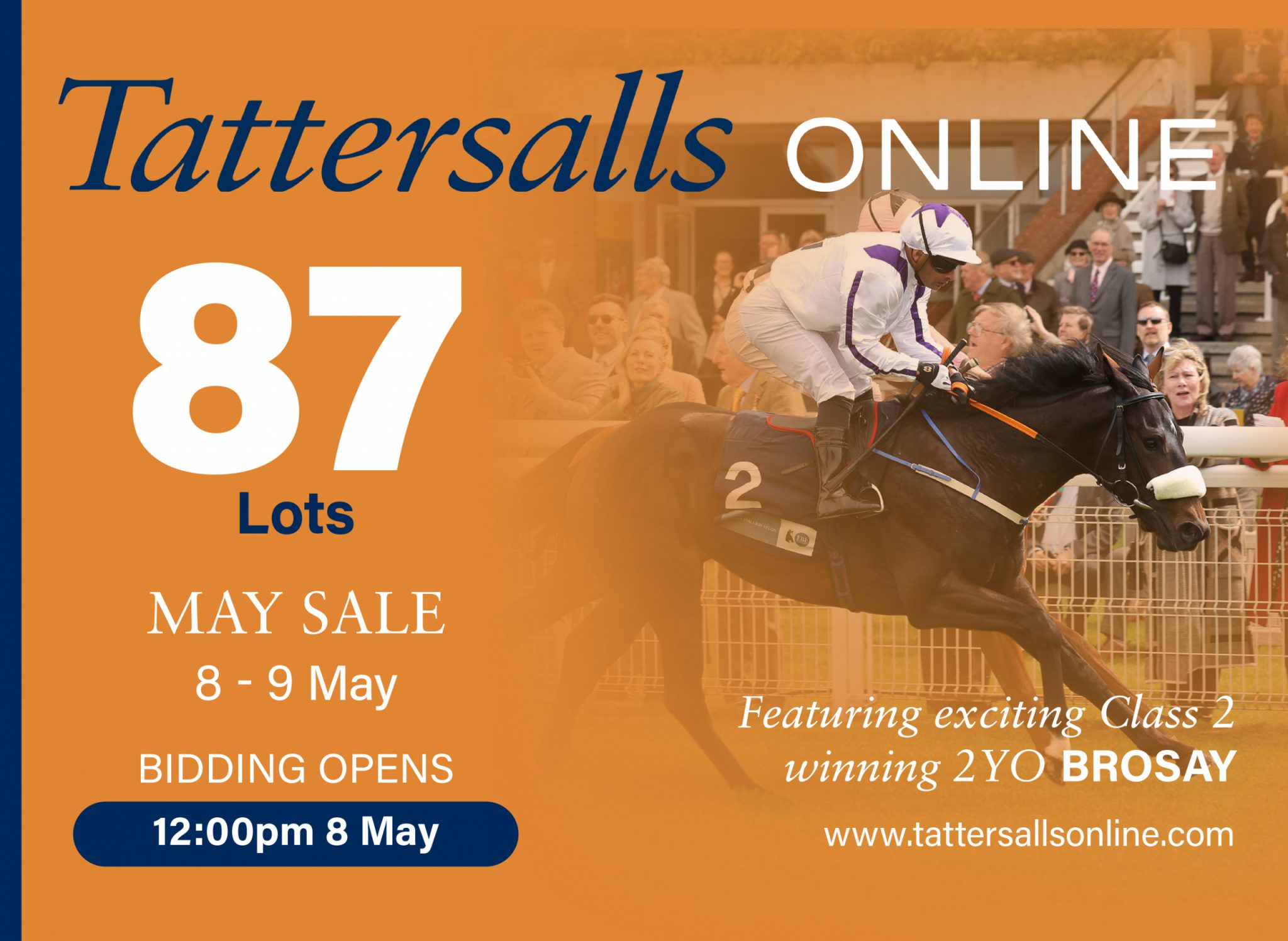By Bill Finley
Do you need real horses to have betting on horse racing?
William Hill, one of the world's leading bookmaking firms, apparently doesn't think you do. Last week at two of its Las Vegas racebooks, William Hill began taking bets on “virtual” horse races. The races, already popular with bookmakers in the U.K., where they are also offered over the internet, go off every five minutes and feature computer generated horses battling it out to the wire. For the U.S. version, famed announcer Tom Durkin provides the calls. The fields consist of eight to 12 horses and costumers can make win, place, show, exacta and trifecta wagers. There are no past performances available and the odds are fixed. The lower the horses odds are the higher the chance it will win the “race.”
To watch a sample race click here.
“Virtual racing has been popular in the U.K. for a number of years and it makes up 18% of our horse racing win in the U.K.,” said Joe Asher, CEO of William Hill US. “Early in the week, you go into one of our racebooks and you'll see five TVs with the exact same track on. There's just not enough content early and midweek in the U.S. and in Nevada in particular. We have these gorgeous racebooks that will have 40 TVs and just two tracks or three tracks are going. So we needed to do something to get more content and we think virtual is a really good filler product. It's clearly not something for everyone, but if you're hanging around in a race and sports book and you've got 10 minutes to kill and there's a race going off every five minutes you might bet a few bucks on it.”
For now, the virtual races are available only at the Plaza Hotel and Casino and the Silver Sevens Hotel & Casino. Asher explained that Nevada regulations require new gambling products such as virtual racing be introduced with a limited trial run before they are given complete approval. He said it will take at least 30 days before that happens and at that time the computerized races will be offered at all William Hill racebooks in the state.
“Yes, people are betting on it, but for us what really matters right now is whether the product is performing as it was designed to and expected to and that there haven't been any technical issues,” Asher said. “That's the real focus during field trial. We're not advertising or promoting it. We just want to get through field trial first.”
Should William Hill's experiment turn out to be a successful one it will likely spread to other racebooks. Asher said he has fielded some inquiries from other casinos and race and sports book operators.
Many within the racing industry will likely view the advent of virtual racing as a negative for the sport. Whenever a customer bets on a real race in a William Hill facility, William Hill has to pay a percentage of the wager that goes toward purses and to the track operator. When a bet is made on a virtual race, William Hill is not required to make any contribution to the sport.
If 18% of the “horse racing” action at a William Hill betting shop in the U.K. is on virtual races, has that cut into the handle on real races and will it do the same here? If successful in Nevada, could virtual racing spread to OTBs, simulcasting facilities and ADWs, all of whom would love to not pay and any fees to host tracks?
“My reply would be that nobody is making money on horse racing in Nevada today or very few people are,” Asher said. “It's tough because the business model is a challenge. Track fees have been going up and handle has been going down, and that's not a very good combination. Our main focus around this is to fill a void because there is not enough content. We've got these big footprints in the casinos. It costs us a considerable amount of money every day to operate, between rental payments we have to pay the casinos to staffing costs. We've got to try to find some revenue. The way we've done it is to come up with a product we think is going to be appealing to customers. Ultimately, it's for the customers to decide what they want to bet on. We think virtual will be popular. It's popular in the UK. But the idea that this is somehow going to be a competitive threat to the horse racing industry is silly, in my mind.”
Not a subscriber? Click here to sign up for the daily PDF or alerts.






